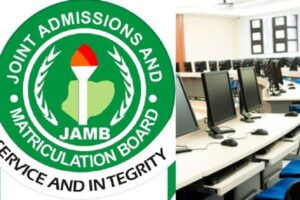In January 2025, the Association of Arewa Yoruba Youths (AAYY) made a heartfelt appeal to President Bola Tinubu and the federal government. They urged the government to cover the registration fees for the 2025 Joint Admissions and Matriculation Board (JAMB) Unified Tertiary Matriculation Examination (UTME) for all eligible students across Nigeria.
This request aims to alleviate the financial burdens many parents face due to the prevailing economic challenges.
The Appeal in Detail
Lawal Hussein Taiye, the National Coordinator of AAYY, highlighted the financial strain on families striving to provide quality education for their children. He noted that approximately 1.8 million students registered for JAMB the previous year, with expectations of around 2 million candidates for 2025. With the JAMB registration fee set at about ₦7,000 per student, the total cost for 2 million applicants would amount to roughly ₦14 billion nationwide. Taiye emphasized that this initiative would significantly assist parents and underprivileged students, enabling them to register for the examination despite the current economic hardships many households are experiencing.
Economic Context and Educational Costs
The economic landscape in Nigeria has been challenging, with many families struggling to meet basic needs. The cost of education, including examination fees, adds an extra layer of financial pressure. In December 2023, the Joint Admissions and Matriculation Board (JAMB) addressed concerns about a perceived increase in UTME registration fees. The board clarified that the cost of obtaining the UTME application document remained at ₦3,500. However, additional charges, such as a ₦700 registration fee and a ₦1,500 fee for the optional mock UTME, were consolidated to prevent exploitation by Computer-Based Test (CBT) centers. This consolidation aimed to streamline the payment process and protect candidates from potential overcharging.
Government Interventions in Educational Funding
There have been precedents where government bodies have intervened to support students financially. For instance, the Lagos State Government reported in December 2023 that it had expended a total of ₦4.2 billion over four years to cover the West African Senior School Certificate Examination (WASSCE) fees for students in public schools. This policy, initiated in 2000 during President Bola Tinubu’s tenure as the Lagos State Governor, underscores a commitment to ensuring that financial constraints do not hinder students’ educational pursuits.
Community and Legislative Responses
Beyond governmental efforts, community leaders and legislators have also taken steps to support students. In March 2024, Senator Shehu Buba Umar, representing Bauchi South, was commended for sponsoring JAMB registration fees for over 350 selected science students in his constituency. This gesture not only alleviated financial burdens but also motivated students to pursue higher education.
However, not all proposed interventions have been successful. In October 2023, a motion was presented in the House of Representatives, urging members to adopt public schools in their constituencies and cover examination fees for students. The motion also sought to compel examination bodies like JAMB, WAEC, and NECO to register students for free in the 2023-2024 academic session. Despite the well-intentioned proposal, the motion was rejected, highlighting the complexities and challenges in implementing such widespread financial interventions.
The Importance of Supporting Education
Education remains a cornerstone for national development and personal advancement. Financial barriers, such as examination fees, can deter talented and deserving students from accessing higher education opportunities. By addressing these financial challenges, the government and community leaders can foster a more inclusive educational environment, ensuring that all students, regardless of their economic background, have the opportunity to succeed.
Conclusion
The appeal by the Association of Arewa Yoruba Youths to President Bola Tinubu underscores a pressing issue: the financial hurdles many Nigerian students face in their pursuit of higher education. While there have been commendable efforts by both government and community leaders to mitigate these challenges, a more comprehensive and collaborative approach is essential. By investing in the education of its youth, Nigeria can pave the way for a brighter and more prosperous future.
FAQs
-
What is the current JAMB registration fee?
As of the 2024 UTME, the cost of obtaining the JAMB application document is ₦3,500. Additional fees include a ₦700 registration fee and an optional ₦1,500 for the mock UTME.
-
Why did the Association of Arewa Yoruba Youths appeal to the government?
The association urged the government to cover the 2025 JAMB registration fees for all eligible students to alleviate the financial burdens on parents amidst the prevailing economic challenges.
-
Has the government previously covered examination fees for students?
Yes, the Lagos State Government reported spending ₦4.2 billion over four years to cover WASSCE fees for public school students, a policy initiated in 2000 during President Bola Tinubu’s tenure as the state’s governor.
-
Were there any legislative efforts to make examination registrations free?
In October 2023, a motion was presented in the House of Representatives to compel examination bodies to register students for free for the 2023-2024 session. However, the motion was rejected.
-
How can financial barriers in education be addressed?
Addressing financial barriers requires a multifaceted approach, including government funding, community support, legislative actions, and policies aimed at reducing costs associated with education to ensure all students have equitable access.

Leave a Reply